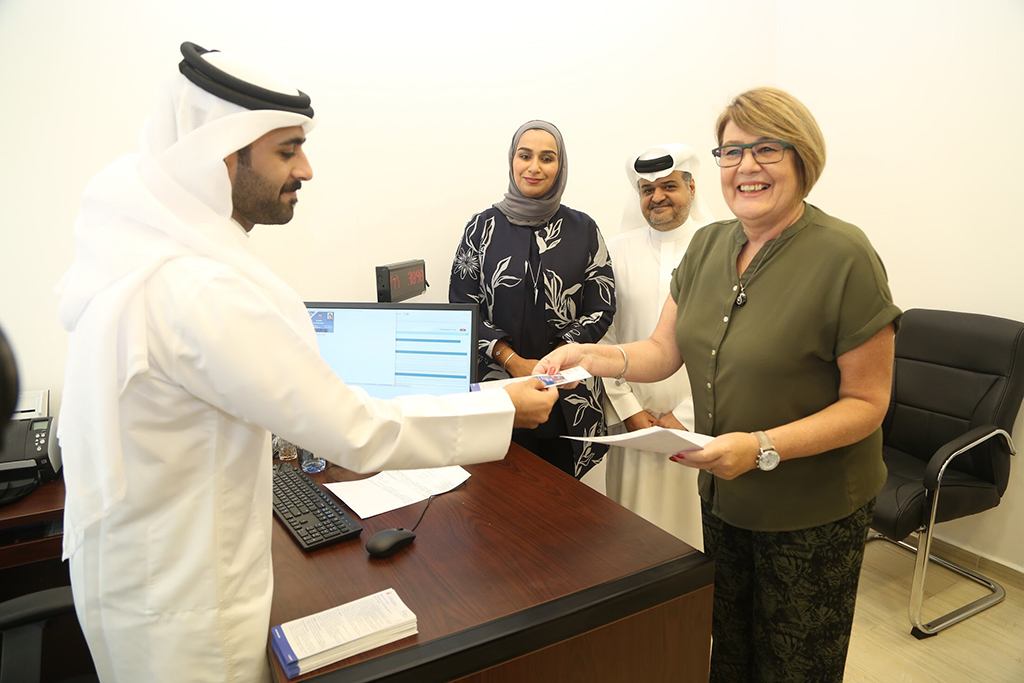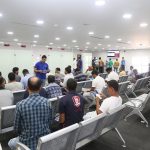Labour Market Regulatory Authority (LMRA) launched the flexible work permit in a ceremony held at its Sitra branch yesterday.
The flexible work permit, issued for a period of two years, would enable an Individual to be his/her own sponsor. The permit holder would be free to work anywhere at his choice except in restaurants, salons and hotels, and would be entitled to service at all the Government health centres and hospitals.
The permit holder can work part time or full time with any number of employees and it is meant for those workers who are illegal residents in Bahrain.
The initial payment is BD 449 for obtaining the flexi permit. In addition to the initial payment, there is a monthly payment of BD 30 and the monthly payment can be made through any branch of the Bahrain Financing Company (BFC).
Non-payment of monthly fees may result in cancellation of the permit, and for changing to a normal work permit, it will be necessary to cancel the flexi permit.
The blue card should be renewed every six months; renewal would be free of charge.
“Through this system, we are changing and evolving the labour reform structure in the country,” LMRA CEO Ausamah Al Absi said.
Elaborating on the deposit to be paid for return ticket Al Absi said: “A lot of people have raised questions on the deposit to be paid for the return ticket. At the end of the day, it is the responsibility of an employer to send their employees back home and in this case, we do not want any room for confusion. We do not want a permit holder coming to us and telling us we want to go back but he don’t have the money. So, we take a deposit of BD90 for his/her return ticket which is refundable,” he said.
On how the deposit is refunded at the time of exit, he said: “If any worker want to buy his/her own ticket we have already spoken to the Bahrain Financial Company, where they have an outlet in the departure area after immigration and we have a system with them where if a permit holder shows them their final exit, the company would exchange the deposited money and give it back to the person.”
“This is the way forward in an economy which behaves not just in Bahrain but in the world. In a span of two years, we are targeting 48,000 applicants. The system will further be enhanced by the way the economy behaves in the country. In today’s time, the economy demands legal access to talent and skill and thus we are making sure we provide this along with providing a better and legal way of living for workers in the Kingdom,” he said.
Emphasising that the Blue Card doesn’t replace the National Identity Card, he said: “This is just a method in which an employer knows that he/she is dealing with a legal person. The permit is issued for two years but the card is being issued for six months free of cost as this procedure will help us form a data base and will help us observe the work and living pattern of the country.”
“It was very difficult for us to gather information as the workers were illegal and were always scared to share information but with this legalisation, creating a data base will be much simpler and will help us target the need of the economy,” Al Absi said.
Regarding execution of the flexible work permit he said: “A lot of people would have questions on how this is going to be executed smoothly. LMRA is completely equipped and organised to deal with growing number of applicants who come for the flexi work permit.
The first week we will be working until 7:00 pm but later we will work from 7:30 am until 9:00 pm. We are working five days a week in two shifts. LMRA is used to handling a pressure like this as this is not something new for us. At our head office we receive 2500 applicants per day, and here we are talking about 150 per day so we would say executing is not a problem,” Al Absi added.
“We need people to add value addition to the economy and with this system, we will be able to do that. A system like this would make the operational cost much lower, it will increase the level of service and support growth of an employer. In this system, the cost that the employer puts in for an employee would be much reduced and a Flexi worker could provide its services to a multiple organisation which will benefit both the employer and employee,” Al Absi added.
Harpreet Kaur/DTNN reporter@dt.bh




